#Sawtooth waves
Text
If I was a famous YouTuber, I would simply not be a creep.
16 notes
·
View notes
Text
Oh btw sawtooth waves is a pedophile
#brony news#:(#sawtooth waves#:(((#finding that out made me sad because#they were my favorite as a young child#:((
11 notes
·
View notes
Text
WARNING /// GROOMING, PEDOPHILLIA
idk if anyone’s posted about this yet, but recently Sawtooth Waves has been revealed to have groomed and gotten sexually involved with minor. This is sickening since i watched their content so much as a kid and had no idea about this. My heart goes out for the victims and I’m sharing this for awareness. Do not harass anyone involved.
https://instagram.com/beware_sawtoothwaves?igshid=YmMyMTA2M2Y=


#mlp#my little pony#brony#my little pony friendship is magic#mlp fim#brony fandom#youtube#sawtooth waves#brony notion#the brony notion#warning#awareness#my#little#pony#mlp fandom#my little pony fandom
15 notes
·
View notes
Text
Derpy Sawtooth Hooves
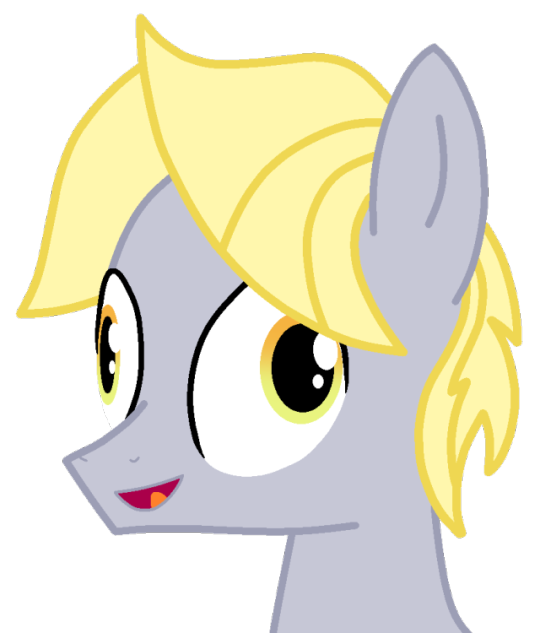
Sawtooth Waves with Derpy Hooves' color palette. He got the cross eyes too! He is now Derpy Sawtooth Hooves!
Based on this picture:
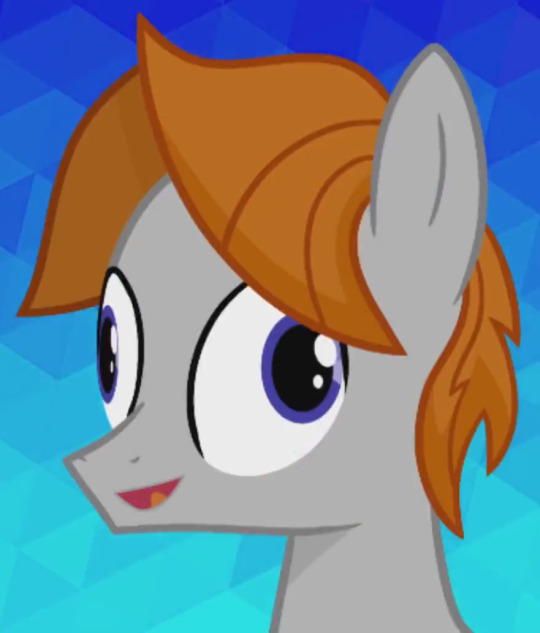
1 note
·
View note
Text

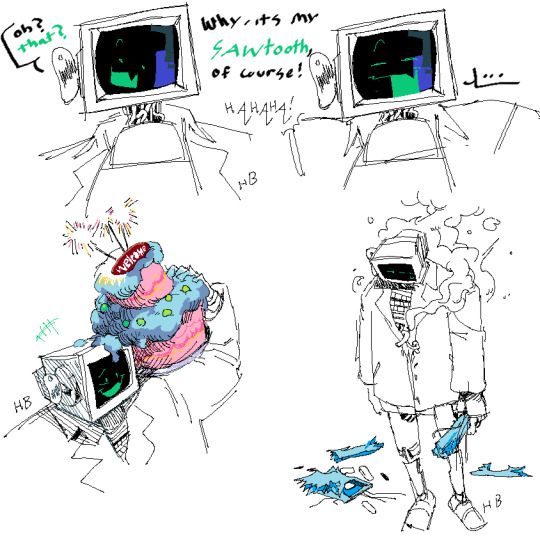
spinning disks
#oc tag#hb's robos#object head#robot oc#robot boy#what a tag#tv head#computer head#he laughs in sawtooth waves and it sounds hideous#genuinely forgot i did these#digital sketch#ms paint#microsoft paint
51 notes
·
View notes
Text
- does your "8 bit cover" sound like an nes, master system, c64, pc engine or gameboy
+ it sounds like 8 bit
*i check it out*
*it’s nes*
#thoughts#so retro#what people call 8 bit music is just square waves#triangle waves#and sawtooth waves#with a noise channel#so basically just the stock nes sound
5 notes
·
View notes
Text
if i had a nickel for every time a youtuber i idolized and enjoyed the content of as a child turned out to be a pedophile and groomed a young fan, id have three nickels, which isnt a lot, but its sad and disappointing that its happened three times
#this is about the recent sawtooth waves situation#fuck them#they meant so much to be as a kid and inspired me so much#fucking disgusting
11 notes
·
View notes
Text
How sad to hear about yet another brony analyst who’s been outed to having romanced/texted inappropriately with a minor.
0 notes
Text
POV: A YouTuber you grew up watching turned out to be a bad person
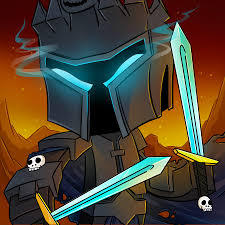


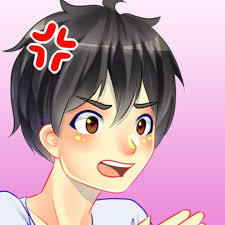
link 1
link 2
link 3
link 4
#Nostalgia#YouTuber#YouTube#popularmmos#Crainer#brony notion#Sawtooth waves#yandere simulator#yandere dev#Mrcrainer
4 notes
·
View notes
Text
My childhood did not age well
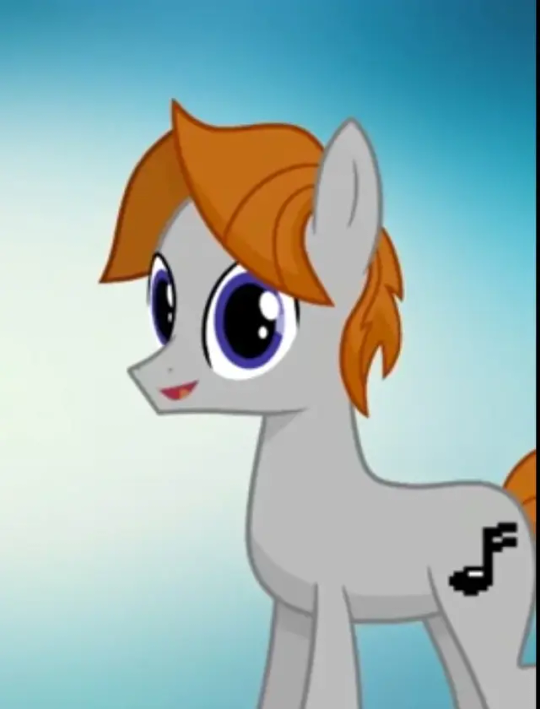
3 notes
·
View notes
Text
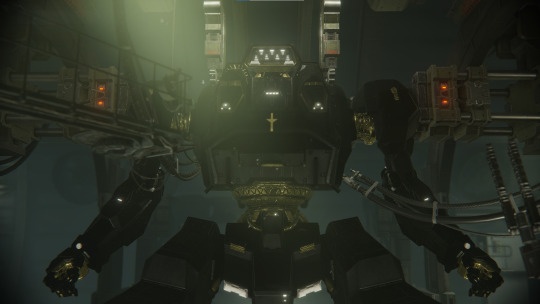
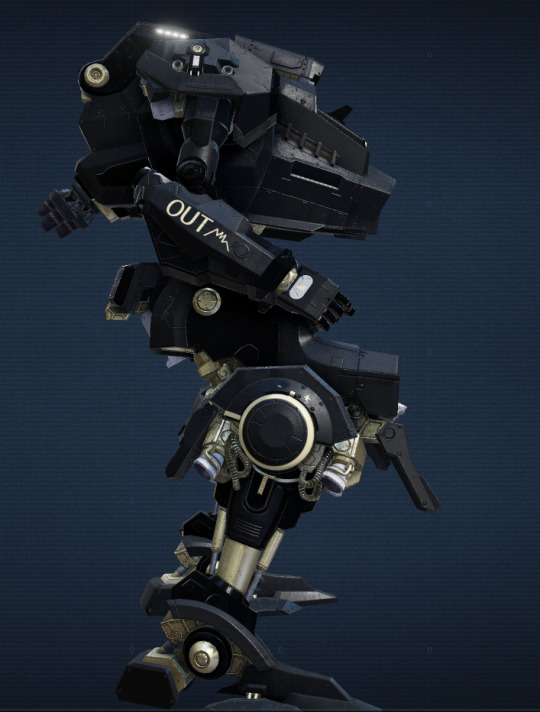

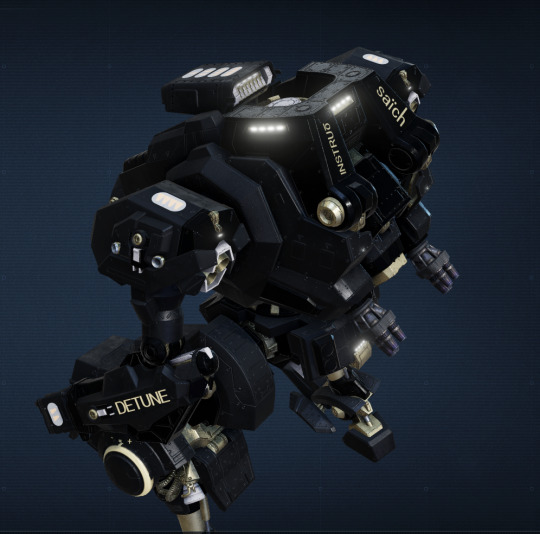
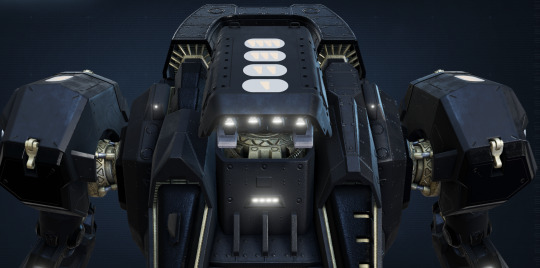
Finally satisfied with the look for SAWTEETH, the first AC inspired by a modular synth module (allegedly)
Saich is an oscillator that outputs 4 sawtooth waves that can be detuned from each other. It's a thick, crunchy and very unsubtle sound so I wanted Sawteeth to be a bit of a bruiser.
Details include the Voltage "knobs" on the legs, Output labelling on the right arm, Detune on the left arm, module manufacturer & name on the back fins, and Activity indicators for the 4 "waves" on the head, corresponding to the 4 weapon slots on the hands and shoulders
253 notes
·
View notes
Text
i wish i could make computer noises and error noises abd static noises out of my mouth. i wish i could open my mouth and produce a perfect sawtooth wave
61 notes
·
View notes
Text

a/n: This is my first ever fanfic so bear with me. There is no content of this man so I wrote something because ahhhh
warning: this is not proof read (I’m dyslexic) and is probs terrible
summary: Readers saves Jim yay
It had already happened. It was too late to save Jim. He was the victor and he was about to claim his price. A part of him knew something was wrong, he could tell by the eagerness of officer rick, hand resting on his gun.
He looked down through the crowd of people dancing, all the happiness and love shared by the people that made the room warm and humid. Then he saw her, the girl who came to stop this stupid tradition. But the animalistic nature of teenage boys was too much for one girl to stop.
She had a-lot of rumors around. People said she went off the deep end after her only friend, the winner of last year’s run left town. Jim always admired her from a far, the beauty of the girl was something he had never witnessed before. It was like the universe had made him just for her. He never looked in her eyes until after he killed sawtooth jack, when he did, he saw someone who looked as though someone had just savagely murdered their best friend. And in a way he did.
After the crowd lifted him the air and the wave of adrenaline came down, he went to her as she wept over sawtooths body.
She explained everything.
He was going to die.
Jim walked through the crowd to the girl. Letting her magnetism pull him in. She walked to him, because in this universe she felt the same. Meeting in the middle of the dance floor they made a plan. To leave this stupid town.
He knew what needed to be done, but she was the one who had the heart to do it. They met at the crossing, a shotgun and pistol were loaded into the car and they simply drove away.
The sheriff wasn’t far behind, but they knew what they had to do to stop him. The car reached a screeching halt, one look was shared between the two. After Jim left the car and followed the sheriff to grave that had been dug dozens of times. She followed. And so did death.
One shot for the sheriff, and one for the farmer.
Once back on the road it was clear, even though they had stopped the cycle, all they had become was monsters themselves.
As they drove to freedom through the night there were no words shared just grief for the people they left behind, the people who didn’t get the treatment of a victor.
It was vowed that next year they would save Richie, to give him the same freedom they were yet to share.
#jim shepard x reader#dark harvest#jim shepard#jim sheperd#dark harvest fanfic#dark harvest movie#dark harvest 2023#first fanfic
87 notes
·
View notes
Text
A Dream’s Winding Way
Part I — A Beetle in a Matchbox



Pairing: Arthur Morgan (high honor) x Female Reader
Summary: For as long as you could remember, you dreamt of falling in a love so whole and pure it was worth enduring the many griefs in your life. But the world, cold and cruel as it was, robbed that dream from you, and you believed you would forever be broken until you met a man who was scarred in his own way.
Word Count: 9.2k
Warnings: sexual assault, grief (past loss of parents/caretaker).
A/N: This story is about surviving sexual assault. Over the past two years I’ve been writing this an effort to cope and process my own experience, but I also set out to write this for others who have suffered this as well. I wanted to craft a story that explored healing, finding a partner who understands consent, and feeling safe with them. Not every reader may be in the headspace to read this as I deal heavily with the wave of emotions that comes after an attack. The attack itself I did not desire to go into violent detail of, but it is there and it may be triggering.
Regardless, I want any reader who decides they aren’t in the right place to read this because of the triggers to know that healing is possible, that you are not broken, ugly, or worthless, and no matter how much trauma has taken from you, you can still live a good life. Arthur Morgan is a comfort character I imagine would be that partner who understands boundaries and vulnerability and sees a woman he holds feelings for as more than her pain.
Part Two | AO3 Link

In memory, the woolly tufts of a moon-white dandelion swayed in a long departed breeze. You held it close, contemplating your heart’s desire amidst the babble of brook and the music of birdsong.
I want my first time to be with someone I’ve given my heart to.
The wind sifted through your skirts and the trees, meanwhile the deepest hope of your heart unfurled with a wishful blow until all that remained of the dandelion was a bald stem. You cast it off into a pebbled stream for the water to claim. The seeds coasted in the air and a motherly breeze carried them in its gentle wake, cradling your wish to the future day it could come true. No spider webs ensnared them, and the canopy parted to admit their passage into the turquoise sky. On that bank you stood on the cusp of womanhood, your world lush with possibility and untouched by tragedy, allowing your young heart to nurture such a naïve fantasy in the spring sunshine.
~ * ~
~ I — A Beetle in a Matchbox ~
Sawtooth Mountain Range, Idaho. 1891
In the before, life was a fairytale. It was rising with the sun to a land still cold from a night beneath the mountains’ shadow, where wildflowers purpled the meadows and dawn trailed amber fingers through the abundant evergreens. Every day you opened your kitchen door little changed. Each morning, before you unlatched the garden gate, you enjoyed the music of singing birds alone, breathed in deep the thick and clean scent of pine, and cherished every place the sunlight touched in this little, precious corner of the world. From spring thaw to fall frost, the morning grass beneath your lively step held pinhead glitters of dew, dampening your hem as you would amble to the chicken coop, basket in arm and contented at the sight of a tawny rabbit nipping at the vegetable patch. It was the rewarding routine and rustic simplicity of tending a goat and digging your fingers in the fresh soil of your garden, the enjoyment of friendly society while working at the hotel in town and the privilege of sharing a cottage with your grandmother—the only family you had left.
A few years after you were born you lost your parents to cholera. You had no memory, fond or otherwise, tethered to them and the objects they left behind to unfailingly inflict the salt and sting of grief. Tucked inside your blouse you kept your mother’s ring on a chain, and on your bedside table a portrait of them sat framed and propped. The coolness of the metal and the sepia tone of the photograph made you smile with gratitude for what pieces of them remained. Pieces that were soft and unserrated, that you could hold on to, thumb the edges, and feel only the smooth ease of kinship. But the most comforting reminder of them all was your grandmother.
To you, she was a soft-spoken and welcoming woman, one who had lived a full life beneath the sun by the token of her laugh lines and the fan of wrinkles beside each of her eyes. With others she was sensible and solemn, and not a person to scam or underestimate.
Few saw the side of her you did: the kindhearted woman whose hair you helped pin up in a nautilus of braids each morning, whose dainty collar was kept mathematically straight. She often took you through the forests and taught you all about herbs and curative plants, instructing you to gather the roots of ginseng and the ruby heads of yarrow for teas and tonics and you took an instant proclivity towards it. She gifted you with a stack of field guilds on mushrooms, wildflowers, trees, birds, and everything else within the forest to prepare you. With a cattleman stowed on your hip she trusted you to venture out alone, and your horse, Willa, carried back your fragrant pickings in large, leather sacks that hung from her saddle on the path home. In the evenings, through the space in the boughs overhead, a scarf of smoke greeted you from the cobbled chimney of your home, where inside a stew pot waited, simmering with the fragrant steams of vegetable broth.
Those were treasured times, and you would never fully appreciate the true goodness of those days until your grandmother passed away, because for as much as she taught you to watch out for yourself, you still had so much to learn about the dangers of the world.
The people from town came by to offer their condolences and casseroles, and Mr. Greely gave you a week’s pay and time to grieve. You would get back on your feet, you knew, but you were grateful for everyone’s generosity and sympathies.
Winter came, a season of most cold reflection, and the solitude of trackless snows resembled the emptiness in you. Food turned to ash in your mouth, the pale and placid blue of the sunrise on mountain snow stirred no awe in your eyes, and you drifted through life as if it were a waking dream. Loneliness was a pit, and long had you trailed the span of its walls with unfeeling hands to a degree of familiarity and cold comfort, circling, circling, listless and hollow.
As snow did, melancholy mellowed with spring. A day came when you awoke and opened the windows of the cottage to a renewed earth, wherein the singing liberation of fresh streams and rosy birds suffused the air and lifted your spirits. A breeze stirred the curtains. A cloud melted in the sky. The serenest of sunshine warmed your cheeks and a wind cleared your lungs, and each breath you inhaled was like a sip of chamomile tea as it swept its balmy way through your body. Venturing out, steps bedded by clovers, the water you drew from the mossy well held your reflection, and within its silver glimmers you glimpsed a girl who had grown into womanhood and aged a year in the space of a season. You were not the only one to notice this change.
With the spring the surrounding woods grew replete with game, drawing in hunters from all around, of which included one familiar face: the town Sheriff. He rode a buckskin horse with syrup brown eyes and a tail so long it brushed the earth; a wild stallion he tamed himself. The horse’s dappled flank often carried deer pelts on his way back from the deep forest. A trail wound not far from your cottage and he loped up one day, checking on you. You spied the old cedar stock of his long gun, stowed in his saddle holster as he pulled up the reins, the fringe of his suede jacket rippling as he jounced to a stop.
A howdy was exchanged as you balanced a basket of currants on your hip. Hand cupped against your brow, the sun beamed warm through the straw of your hat and you offered a polite smile to the man with a neatly trimmed black mustache, his face otherwise clean-shaven. A few minutes of amiable conversation ensued—him discussing the heavy snowfall of the winter and you assuring him you managed the harsh season. He took a more meaningful tone when he inquired about living on your own, if you had a means to protect yourself, and if you happened upon any unfriendly-looking persons. You knew well how dangerous it was for a woman to live by herself, in the wilderness or otherwise, regardless of the presence of your father’s old hunting rifle mounted above the fireplace. His concern was not unwarranted, after all you supposed it was his job to keep the town and the people in it safe. Knowing that someone in the world was watching out for you was a small relief you welcomed, but you wished you peered past the cloak of concern to unveil the underlying intention behind his appraisal of your competence before it was too late.
He visited weekly. Oftentimes he brought a bundle of wildflowers he had collected on his journey over; bluebells, because they were his late wife’s favorite. And no shortage of compliments accompanied him, either. Both you accepted awkwardly, not used to receiving this sort of attention as you handled the uprooted, bent stalks with the utmost care. He was on his way with a tip of his Stetson before long, and you pushed all thoughts of men far from the forefront of your mind as his horse’s hooves thumped off into the waning afternoon.
You wished you paid more attention when the Sheriff spoke of his wife’s passing and tried to relate his grief to yours. He loved her, and the naïve part of your mind believed the love in his heart would remain and never dwindle, because the love you held for your family endured despite the tragedies. He made you laugh on occasion, made you look forward to his visits, and worst of all, he got you to trust him. But he began to ask things of you, about you. Questions too personal. Would you be looking to get married since you were of age? Were you sweet on anyone? Questions that made you stammer in a way he mistook for something other than being flustered.
For as long as you dreamed, you dreamt of what falling in love would be like. It was the momentous landmark you looked forward to reaching the most in life. Something worth treading the painful slopes and crumbling scree of loss. To disclose that dream to him would be to give the wrong person the right piece of yourself, so you guarded your answers to his intrusive questions with ambiguity. He would huff, thwarted, but somehow, in some inadvertent way, he took it as encouragement to think his forwardness was welcome, because maybe he never would have come to you that night.
An invincible storm had rolled in. Rain poured wild and cold against the windows in veins of silver mined from the ore of thunderclouds, battering the panes and drumming the roof. Dark through the wilderness shone the sheer slanting waves of the downpour, lashing against the trees until their branches bowed in submission, moonlight devoid throughout. Flows of water sluiced through the baskets of geraniums hanging in the eaves and ran off the shingles, splashing down upon the ground in rippling puddles that danced with each new drop. Droplets and branches tapped against the other side of the cool glass against your hand, meanwhile, at your back, your dinner popped and hissed in its pot. You turned and drifted away from the window pane at length, and let the lacy curtain fall back in place.
After supping, you draped a knitted throw around your shoulders and settled near the fire at last, to doze and drift in the peace of falling rain while tucked inside, safe and warm. As logs of cedar and birch snapped, sadness tapped against the window of your mind, as it often did, and your gaze was lost to the flames in rumination, the book in your lap forgotten as you reckoned with your circumstances. You were as content as you were able to be without the ones you had lost, but in the hollow of your heart your grief was a wound that never healed and yawned at times. Your grandmother’s perfume of heavy, dark red roses still clung to the soft weft of the blanket you held close—a smell that made you tender towards the past. So many traces of their life upon the Earth remained.
A horse’s whinny broke your reverie. Your book fell as you jolted from the chair, seeking out your gun on the table before investigating the disturbance. Willa was situated in the small stable, and if someone was outside—
Rigorous knocking rumbled through your door frame, followed by a familiar voice, pleading.
You set the gun down and yanked open the storm-pelted door. At the same time, a boulder of thunder rolled through the night. Across the land lightning flashed through the sky to illuminate the weathered face standing at your threshold.
“Sheriff? What on Earth—“
He barged past you without invitation, shotgun ready in hand. For all of an instant you stood frozen in bewilderment, until the gusts of wind billowing in prompted you to shut the door and your gaping mouth. He was on a mission, it appeared, because he ignored your protestations.
The Sheriff blustered his way through your tranquil home in a whirring of spurs and a splatter of muck. Dirt ankle-deep caked his riding boots, his feet muddier than a pig’s hooves as he searched about the main room in a frenzy, yanking open doors and shoving aside furniture. Each of his intrusive footsteps quaked the floors, shaking the fine dishware in its special cabinet, the copper pots hanging above the dry sink, and the shelves of jarred fruits and jams. He carried rainwater and the look of a storm in his wake, shattering the peace you found earlier this evening completely. From his ebony gun belt a hunting knife and a freshly-oiled Schofield hung prepared beside his Sheriff’s star.
You stood waiting, arms folded, for an explanation.
When the last place for him to search were the floorboards you stood upon, he sagged and sighed with relief, deflated. He removed his hat, his face no longer obscured to reveal the grim line of his mouth and a hard determination simmering in the umber of his eyes. At last, he explained himself.
He said he came as soon as he heard to make sure you were safe. Safe from what? you asked. Bad men were about, he stated. Outlaws, murderous train robbers and thieves wanted across two state lines. Men devoid of a human conscience. The words sunk in with a weighty silence of understanding, silence in which the rain filled and your imagination could wander to gruesome places. Strangers seldom passed through here, let alone outlaws, you commented.
“Now you understand my lack of decorum. I hope you can forgive my negligent manners.”
Solemnly, you nodded. The hairs along your arm had risen, skin prickled, and you sought the ring hanging from your neck out of habit. To hold it against your heart and trace its comforting shape kept you grounded in moments of uncertainty.
In his hands he fiddled with the brim of his hat. A puddle formed on the floor where he stood.
“You must be chilled to the bone,” you ventured. “I’ll pour you some whiskey.”
“That’d be mighty fine of you, miss.”
Your hospitality indicated a hesitant welcome, but the Sheriff was clueless to your apprehension. The rain subsided to a light tapping on the roof and window panes; he could have his drink and be on his way momentarily. You turned to busy yourself with finding a glass. Meanwhile, the click of his spurs trailed over to the wall hook. Fabric rustled as he hung up his Stetson and shed his dripping coat.
With no electricity, you relied on oil lamps to keep your cottage illuminated. The steady, amber glow cast from the etched glass sconces always imbued the acorn brown stain of the woodwork with warmth and charm. However, the Sheriff’s presence in your home inverted all the comfort you found within it. The dried herbs hanging in the rafters offered no rich and earthy smell, the bowl of fruit on the counter promised no sweet taste in the gleam of their ripe skins. But you ignored all of these perceptions and the insect crawl of wariness creeping along your spine and retrieved the bottle of rye whiskey you kept for medicinal purposes.
You kept your back to the Sheriff as you perused your selection of glassware for a suitable tumbler. Touch skipping lightly along the wood, dust coated your fingertips as you drew from the top shelf. In the pit of your stomach dread curdled. Outside, the storm had lessened, but another one of unease was brewing inwardly. Through the reflection of the cabinet doors you caught the Sheriff’s stare as you shut them, latched to your form. The shameless indulgence in his gaze provoked a flare of ire through you and you cleared your throat with an air of reproach.
“Where was this gang of Dutch van der Linde’s spotted?” You turned to him, shoulders and chin raised in an effort to appear untroubled. The question hung for a moment as the Sheriff considered where to place his undue shotgun. The stock settled against the table leg and he straightened at your approach, smoothing a hand over the broom of his mustache.
“Near Taylor Ranch,” he answered.
You blinked. Without a hat, shadows no longer concealed his pockmarked cheeks and the bushy, ungroomed lintels of his eyebrows. His shirt was wrinkled and damp from riding in the storm, clinging to his skin. The top two buttons were uncharacteristically undone, peeking wiry chest hair.
You had paused, but not because of his unkempt appearance. The whiskey shivered in tones of gold and brass as you set it on the table absently, along with the glass. Light from a lone, flickering candle caught the ginger liquid like a brazier.
“That’s only two miles from here.”
A log fell in the fireplace, spent, embers spitting.
“Indeed.”
He thumbed the curling petal of one of his bluebells, a faint smile dangling on the corner of his mouth. You had arranged the latest cluster of his in a porcelain pitcher set on your table. Below, your eyes dropped to where a few of the flowers had withered and fallen upon the table runner.
Pondering, wood creaked as you retreated to the fireplace, leaving him to his drink and odd fascinations. Meanwhile your fingers worried with your cuffs, twisted in your skirt as you swirled in the eddy of your thoughts. The Taylors. Closing your eyes you remembered the smell of their home: fresh baked bread and strawberries. All of your visits had the flavor of berries and apples. A cross-stitched picture of a goose wearing a bonnet hung in their window and welcomed any who knocked on their door, which Mrs. Taylor would swing open with a smile and a gingham apron around her waist.
Though she had a square jaw and chapped lips, crow’s feet and a stern demeanor, her hugs were the warmest and most welcoming. No one was a stranger at her doorstep for long, for she was quick to invite them in and fuss over a pot of tea and offer her finest plate stacked with shortbreads. Her motherly hospitality and friendliness of heart healed a wound your parents' loss opened. Taylor Ranch was a place you sought in the hours you yearned for solitude and contemplation, amity and freedom. Within their prized orchards resided plentiful avenues for you to explore in the summer and stroll through in the rustling Octobers, twisting from the trees the honey-sweet pendants of autumn to bake into pies.
Marveling at the filigree of branches through which the sun cast its lemony light, it was in this enchanting place you first met the Taylors’ youngest son, Gideon. And what a meeting it was, all those years ago: he fell for you, literally—off an orchard ladder to a ground strewn with windfall apples, his collarbone snapping in the process.
In a rush you swept to his side, apples thudding to the leafy ground. The boy roiled in pain, his face contorting, and you rose to action. His family came running when you called for help, and you did your best to haul him back to the house until his older brother retrieved him from where he leaned against your shoulder. Together you gingerly delivered him to the sofa in the sitting room and his father galloped to fetch the town doctor.
You stayed at his side, this strange boy, noticed the dimples set in his pale cheeks and his russet hair—the rings of which his mother swept aside soothingly. Such soft features garnered an unfamiliar attention from within you. You had stared.
The doctor arrived and set the bone, the grimacing sound and sight of which you closed your eyes against. Standing aside uselessly, you fidgeted with your mother’s ring for lack of occupation. Mrs. Taylor registered your worry and assured you that you were blameless for his injury.
For days you thought of him. Though no words had passed between you, the glance you first shared with each other stilled time and lingered in a meadow of memory. Curiosity was all it was—towards a feeling, an interest in another. Gideon was the first boy to capture your attention in such a way.
At the end of that week you returned to the ranch bearing a basket of sourdough biscuits. Slathered in honey, warm from the oven, your recipe yielded the fluffiest batch perfect for sharing. When she answered the door Mrs. Taylor had the most knowing smile on her face before calling over her shoulder. Gideon appeared a few moments later, a sling around his arm and a thumb hooked in his suspender. He had a hard time meeting your eyes and shifted on his feet when you offered to lunch with him. You sat on the porch together, enjoying the sight of chickens scratching at the fenced-off squares of dirt, of barn cats lazing in the sun, observing the last of autumn’s spell fading in the air.
You visited him while he recovered, kindling something pure and sweet with him. He admired you a great deal. But afterwards, when he was well again and you had no excuse to see him other than the obvious, a kiss was sealed. How peculiar and unexpected it was, the moment he leaned towards you. Sitting beneath a giant oak tree while acorns dug into your hands, you found you dreaded it: the nearness of him. In your mind a kiss was a lucent dream of falling blossoms and a soft blue haze of light, like the very action were a twist of a key, unlocking your soul to another. At least, that was what you had wanted it to be, had always imagined it.
When Gideon the boy kissed you it was a wet slide of his mouth—hungry, rushing, pressing hard and then sucking while his hands groped, seeking parts of your body you had yet to grow into. You sat frozen, eyes wide, not knowing how to move as his tongue roamed. So you took it. Afterwards, you wiped the ring of spittle around your mouth with your sleeve. He had smirked as he leaned away, and you no longer admired the dimples in his cheeks. You made an excuse to leave and when you returned home your grandmother asked if something was wrong, but you never overcame the shame of it to tell her.
A revulsion built and simmered within you for the next few weeks. In town—for you had ceased to visit the ranch—he would press you against the clapboard behind the general store and beg for your lips and your hand to hold as he humped your hips, and he would tell you what he wanted you to wear when he next saw you. He was a foolish, over-eager boy, and he had no notion of romance or how to properly treat the one he was fond of. He knew so little about you and what your heart wanted, and you were disinclined to share any more of yourself with him. Unable to bear it any longer, you broke his heart, and he blamed you for every unhappiness henceforth.
Throughout the passage of ten years his face and the unwelcome manner of his caresses remained unbearable to picture. No longer a boy, Gideon had grown from a clingy and imprudent child into a snobby and spiteful specimen of a man; an arrogant prig who filled his role of deputy at the Sheriff’s office exceptionally. You had long cast him from the forefront of your mind, but the Sheriff’s mentioning of the Taylor’s home and the threat posed to it brought the unpleasant recollections rushing back, and it took a moment before you recovered your composure.
The heat of the fireplace fanned across your cheeks. In the night thunder cracked, calling you back into the atmosphere of the room, where you knelt at a stone hearth, ash on your sleeves. Wood gathered, logs clunked in the grate and scattered sparks as you tossed them in. Your thoughts of the past reached a conclusion at the glug of liquor filling a glass; with your back to your guest you broke the long lasting silence.
“You should be checking on them, not me. Are you rounding up a posse?”
A pouring of liquid answered. His eager lips approached the brim of the glass and swallowed it as if it were a fount of water in a desert. You turned to him as he filled it again.
“I can’t do anything in this storm, and neither can those reprobates,” he pulled out a chair at the table, settling into it as happily as a worm in an apple. “‘Sides, Ned has hired guns and four strong boys to protect his property, whereas you‘re all alone out here—” A cough interrupted him. He blew an appreciative whistle once his throat was clear, sniffing the bottle. “This is some strong stuff you got here.”
Irritation flared within you at his blatant display of indecorum, evident by the propping up of his booted feet on your table. With his bandana pulled down low, the V of his throat gleamed with sweat as he tipped the full glass back. His Adam's apple bobbed, big as a turkey egg.
“Sheriff, while I am grateful for the trouble you’ve…” A drop of mud splattered on the table from his boot. You blinked at it. “—taken on my behalf, I’m perfectly capable of looking after myself.” Not bothering to hide your annoyance you poked and prodded the logs in the grate with a fire poker, leveling his gaze afterwards. His expression held not a drop of seriousness or concern.
“I can see that,” he chuckled. The key of his voice rang clear with condescension. With a great sigh you hung the poker back on its stand and dusted off your hands, looking about the room with a curled lip. His earlier theatrics had displaced much of your furniture.
Your throw blanket laid in a soft puddle on the floor. You bent and folded it in a neat square, draping it over the back of your armchair, and setting that straight, too.
“You don’t need to worry. I’ll make sure those men don’t come near here. By high-noon tomorrow, they’ll be human fruit for the buzzards.” Trouble must have lined your expression, for the aura of pride radiating from his demeanor softened, and you found his gaze fixed moonily upon you. His words painted a grisly image of the scaffold in your mind, which dispelled with a shake of your head.
“What are they looking for, do you think? There’s nothing for men like that out here.”
You wandered over to the window. Behind you, the Sheriff capped the whiskey.
“The law is after them. They pulled a heist near Salt Lake and now they’re on the run with some big score, looking for a place to hide and wait for the heat to die down. But they’re fools,” he huffed, gritting his teeth. “And get this, they apparently give their money back to poor folk, like some sort of Robin Hood gang. They think they’re hero outlaws doing good deeds.”
You had no idea what to think of that. The clock on the wall ticked. Some minutes had passed since the last rumble of thunder, and your hand had naturally sought the ring hanging around your neck in the course of staring off into the night; the rain only pattered, no longer drumming hard on the roof.
“The rain is stopping,” you said.
Chair legs scuffed across the floor. “I suppose I’ve worn out my welcome?”
Turning, you rallied a tepid smile. He had risen to his full height, his clothes still damp and wrinkled. Looking at you, he passed a knuckle across his lips, the hairs of his mustache scritching and the gold of his wedding band flashing. Across the room dark eyes descended from your face, fixing on the hand near your breast. You dropped it and squared your shoulders. To bring his attention back to your face, you called out his name in question.
After all of these years, you wished you could have forgotten it. It would have been a small mercy to your memory.
“I’m sorry, I forget myself sometimes. It’s just…you’re so pretty, standing there in the firelight like that.”
His voice was but a murmur. It was so strange—hearing those words from him. They were supposed to be soft, and from any other man they could be, but his brash voice and hungry stare ruined anything gentle about them. Like putting lace gloves on a fishmonger, they were all wrong and unsuitable for him. They prickled the cold kind of goosebumps down your arms, making you shiver like a rabbit caught in a trap.
At your speechlessness, he took a step in your direction.
“Sheriff,” you started, putting your hand up. Pressing on, you measured the tone of your voice to be as low and as serious as you could muster. “I think you’ve had a drop too many.”
He smirked at you, hooking his thumbs in his belt, beside his badge and his gun. One of his eyes crinkled and the crooked slant of his mouth revealed the stains of tobacco on his teeth.
“No,” he continued on. His steps, as they advanced, grew more condemning than the ones before it, maintaining his slow and leisurely gait. “I’ve noticed it before. I’ve noticed for a long time.”
The truth. So plain before you; it dawned dreadfully like a blood-red sun at sea, shone clear like coins in the murk of a well. The authenticity behind his hebdomadal visits and floral offerings rippled into clarity with those few words: for a long time. How could your eyes have looked everywhere but at the black heart of him? That moment, too, was no exception. You sought salvation from the sight of him by glancing around the room, meanwhile chiding yourself for not being more distrustful and vigilant and for overlooking his true intentions.
Graciously, his foot knocked against something. You caught your breath. For a moment, you had the chance to scope out your options, and put some distance between you and him.
The Sheriff picked up the object impeding his path. Your book—the one you had been trying to read before his fists pummeled your door. The embossed title flashed beneath his passing thumb.
Wuthering Heights.
Long ago the thundering storm and crackle of flame ebbed away, especially within those pages. Branches captured in the sway of a breeze adorned the cover modestly for such a tale of the nature of love and bitterness.
“You’re lonelier than I thought,” he said, quiet and drifting like an afterthought. You tensed. “There’s another reason why I came here tonight.”
He set the book aside and stood. The sideboard rattled as your back bumped against it.
“I think you should leave.”
“Leave? Is that what you really want?”
In one devastating blink, he was before you, so close the thin and pale violet skin beneath his eyes was visible. The fumes of alcohol on his breath stung your nostrils and you wrinkled away as he tipped the sharp beak of his nose to sniff the crown of your head.
You could not help the sharp breath you took at his sordid deeds, the sound of which only pulled his gaze to your quivering bodice and your knuckles, tightened on the edge of the sideboard. He had you blocked in, like a beetle trapped in a matchbox, skittering from corner to hopeless corner. He licked his lips.
“How long are you going to play at this?” A touch meant to be soft and reassuring singed your wrist. “Always looking so pretty and proper, the picture of a perfect wife,” the touch of his hand turned into a vice grip, so total and absolute your fingers could not move. A numb feeling overtook your limbs, your senses held hostage by fear. “Then actin’ all innocent as if you don’t want me too.”
Another touch, this time seizing your cheek coldly as the statue that you wish you were not. At the imminence of his hot, wet mouth seeking to devour yours you found it within yourself to move. A wave of urgency swelled up and carried you away, towards the door, but he had you in his grasp before any hopeful seed of escape could be planted.
The kitchen table with its cheerful lace runner and softly burning candle jostled as your front was bent over it, knocking the pitcher of bluebells to the floor. Porcelain cracked and you watched the water pool, petals floating, darkening the wood, and you wished the night that passed would fall apart into similar pieces, to leave the memories scattered and unstrung like the beads of a broken necklace across a floor.
“What’s it going to take with you,” he had hissed in your ear, his spittled words dripping black, wicked and vile. Metal jingled. Fabric lifted. Cold air met your legs. Buttons freed their hold.
Stop.
“I always knew you were a—”
Stop remembering.
“—pretty thing.”
Absorbed in his vice, he little cared for his actions, entranced by his insidious deed. Foul words and heavy breaths hissed through his teeth and echoed for years after.
Your mind left your body. But you remembered all of it.
And you were so tired of remembering. You hated how easy it was for him to take everything from you. You hated the lust that drove him, your body for being an object of his desire, and yourself for being unable to stop any of it from happening.
The ringing report of rifle fire split the night, and it was the only thing that made him stop. But the damage was done. He tucked his shirttail in, buckled his belt. Left; a promise to return the next evening finalized by a vulgar squeeze to your backside, stinging your flesh.
Wood scraped along your nails as you slid to the floor, clutching the table leg, trembling. At once, with an empty stare and shaking limbs, tears blurred your sight as all of your remaining strength relinquished. You curled into your body, disconsolate. Hugged your knees. Sobs, sobs, sobs wrenched your jaw apart in mourning what was lost and what was done to you.
It would follow your every other thought, that scene of despair in the lonely dark of night. You were cold for so long afterwards; for months, in a way no blanket or bowl of soup could remedy. The misery nested so deep within you. Further than the marrow of your bones.
Every day for the rest of your life you would remember his hands. On you, squeezing, guided and distorted by depraved intent. Darker and drearer fell the night, and the full tide of your thoughts consumed you in a bitter, burning woe.
Until dawn there was nothing but the pale, dead gold of the moon. You saw nothing. You felt nothing. Your mind only replayed it all, over and over.
The violent tint of dawn crept in between the curtains. On the end of your lashes the last of your tears hung, and as the light came upon you, so softly bright, the deep-welling sorrow that sunk your heart yawned into something else. An emotion that braced your hands against the wood floor, collected you to your knees, and drove you shuffling forward. Shame.
In your bedroom you gathered soap and new clothes into a basket before stepping foot outside. A glorious morning announced itself in every sound, from the sweetest music filling the trees, to the wind that gently stirred their nascent leaves. But it all fell on deaf ears. Your senses were lost to grim contemplation.
Along a forest path rippling waters wandered. To their source they led, and alongside its flow you followed.
Ties loosened, you dropped your skirts to your feet at the riverbank. All over, your skin spidered with memories of how he had touched you. The fastenings of your clothes came undone mechanically. You pretzeled arms behind your back to yank at your shirt buttons until all of your body was bare to the misty morning. Silver water whispered its coldness between your toes as you stepped forward onto the pebbled, silty shore, walking without seeing, feeling nothing but the cold encasing your ankles, your knees, rising up until the river embraced your shoulders in a purging chill. With a breath you dipped under. In a blink you escaped.
Beneath the surface, the feelings and the memories dimmed. Slippery rocks brushed your feet and you grasped a slimy branch to sink farther. Little white bubbles floated up as you let the wintry temperature of the water numb your mind into blessed silence. The sensation calmed you, and that was all you wanted; the only thing you could seek within your tremorous reach. Quiet, and a state of unfeeling. Until that moment all of your thoughts were a repetition of the same statement of instability and unease: I don’t know what to do. I don’t know what to do. I don’t know what to do. Teeth chattering; every pore over your body squirmed with the taint of his violation every step of the way to the river. Only beneath the current had it stopped. At last you ceased to think.
Your heart seized and your lungs begged for air. And again, something brought you up. From the kitchen floor, from the bed of the river. With a gasp you broke the surface and your eyes fixed upon the sky. The great blue bowl of it was ringed with treetops, eagles circling—the world around you, going on as it should while droplets trickled down your spine. Clouds of river foam gathered around the stagnant driftwood you stepped over while treading to the bank. Taking a seat upon a rock, you scoured your limbs with soap until the skin squeaked and your fingers pruned, the bubbles drifting downstream. From your hand, ice cold, help deep in the river, the water fell over your knees and your shins, down your shoulders and in the hollow of your back, cleansing and numbing. With the print of the Sheriff’s fingers no longer pressed into your skin, you dried and dressed, ready to face the scene inside the cottage once again.
Too often in this world girls become women before they are ready, before they are strong enough, before they know enough to endure all of the trials womanhood entails. Losing your family to sickness so young, being on your own completely, you thought your world was as bleak as it could be. Until the night that passed—when the universe peeled back another layer of darkness to descend over your life.
Upon approaching the front gate of the only home you had ever known, something changed. The familiar consolation of its shelter was absent. No smile tugged your lips at the dance of dragonflies in the air, at the tulip bulbs in your garden plot sprouting toothy stalks from the dirt.
Within each season resided a singular wealth unique to the forest, the remembrances of which carved fond grooves in your mind to touch over in times you sought comfort, the niches imbued with a sense of belonging and safety. You reached inwards for them.
For the trinkets of winter, silver, blue, and white—the sugaring of snow, the glittering of frost, the river’s music silenced by ice. Leading to the light of the sun warming once again, stout icicles dripping onto emerald moss, coaxing the golden crocus from the thaw. How, slowly, the days grow longer, April rain moistening the lichen on the roof tiles, darkening the soil, spawning the green scent of an Earth renewed.
It was as if every page of memory were ripped from the book of your life, leaving an empty tome. There was no story left for you here.
The door threw a trapezoid of light when you opened it. Standing in the threshold, a five-leaf cluster wandered down from the sky and landed on the floorboard, dotted damply with the night’s rain. Inside, everything was the same, yet changed, like some place in a dream. The house was as dark as a tomb, haunted with the echoes and dust of people taken from you, and someone who took from you. Nothing but a vacant chair welcomed you.
On the mantle rested trinkets from your parents. A pocket mirror of your mother’s, silver and elegant, and a rosewood pipe of your father’s, smooth and genteel. To hold them in your palm, curl your fingers over their edges and clasp them to your skin as if wringing out the last ghosts of their touch, as you so often did, would only bring you to your knees. You needed to move forward and leave it all behind. You needed—
A chip crunched beneath your foot. You stepped away, revealing the obliterated piece of vase. What a helpless, fragile vessel. Admired throughout its lifetime, only to be thrust into ruin. Your hands shook beside you, the bones of your fingers tingling with riotous nerves all the while anguish swelled in your chest to a volcanic boiling point.
A wrenching, piercing roar split your throat apart.
In a rush the desecrated table toppled over. Screaming, you kicked it harder and harder until your toenails bled and the whole thing scudded ten feet across the floor. Your arms swung wildly about with each effort, fighting the images of yourself bent over it, helpless and frozen, and unable to beat them back. More and more you screamed with outrage, but it was not enough. You were not strong enough. Your limbs alone could not prevail.
No man would ever know of the darkness their touch leaves behind. Meanwhile you would carry it forever.
It was not fair.
Your rage conducted you outside, sustained you in the search of some outlet, some tool to deliver greater destruction than your feeble body could convey. Leaving the table behind, pools of last night’s rain splashed beneath your blazing step on the path to the shed where you kept your father’s axe. Jabbering cardinals flurried away to the trees at your storming approach and the sun graced your forehead through the lacings of the leaves they found shelter in.
Ordinarily, the sight of so much emergent green abounding after one rainfall would stoke wonder in you. In one place, in one wind, the new leaves sang wavily while a cloud passed over the glare of the sun, bringing a cooler depth to the shades of the earth until all brightened and warmed again once the cloud melted away. After the longest winter, it was what your soul needed to fill the holes in your heart. Grief was becoming a part of your landscape, however. You stopped short on the path.
A wind-cloven branch warped the roof of the shed. It must have fallen in the night. The severed limb was great and heavy, and in the place where it was once joined to its life force the splintered wood was a tender, meaty white, darker in its center. Bugs skittered along the scales of lichen patching their once steady home; in days the leaves would wither and wilt.
With gravity and a few tugs the branch came down. As it lay upon the stone path, uprooted, your simmering rage found its outlet. This was something you could destroy. You reached inside the shed, and with it in your hand, the axe dragged across the ground. The curved edge shone sharp in the sun as it scraped along stone.
Raising it above your shoulder, your limbs quaked before you released it all at last. Swing after swing, hack after hack, again and again you heaved the hatchet into the log, pieces splintering as memories of him came free as well. Him, his voice. How his acts of kindness were all a lie—a ploy to get you where he wanted you. Bent over a table.
Crack.
Alone. No one to help you. First Gideon with his groping hands, then the Sheriff with the smoldering fire in his eyes.
A split.
You braced your foot against the branch and twisted the hatchet free. Deeper and deeper down into the wood you burrowed, gathering venom with each reflection. As the branch fell apart and wood chunks flew your resolve stitched itself together.
He.
Swing. Your skin is so soft here.
Had.
Breathe in. Forget his words.
No.
Bury them.
Right.
With a momentous strike the tree limb cracked asunder. A final scream tore your throat raw. The birds split free from the sunlit canopy, and the forest was still as your shriek petered to a shriveling wail, then nothing.
The line of thought looping through your head quieted too. The uncertainty and fear of not knowing what to do, how to move forward from this, was gone. While the thread of anger and veins of sadness and shame still pulsed within, it all flowed together, steady and purposeful. The axe hung from your hand, dangled a scant inch from the ground, and your breathing relaxed as the sweat dried cool on your brow.
Lightning had struck this tree twice before. Each fracture diminished its once formidable heights, an august maple which sheltered your childhood in the sweltering summers and cast familiar shadows in your room at bleary midnights. But every spring it flourished in a robe of green, the ruptures healing, new branches broadening their offshoots, and marched onwards to the grand vault of the heavens. However lightning-struck, it lived on, not dying of ruined hopes alone.
The time to dwell had passed. You were done crying. You were done blaming yourself. And you were done with asking yourself why. What you were ready to do was protect yourself from ever getting hurt again. You could not let the pain stop you. So you finished chopping up the tree to break down into firewood later.
A whicker sounded from the stable. Willa, your sweet, gentle mare. Until that moment you had forgotten her. Putting the axe aside, in a dash the door clanged open at your hand and you found her thoughtful eyes in the slanting ribbon of daylight. You sighed in relief. Safe and sound, your only friend left in the world shuffled in her stall, the space smelling of wood and hay. You approached her with an open palm, smoothing it over her black and white coat.
“Hey, sweetie.”
Animals could be so intelligent and perceptive at times. Willa nudged your shoulder, sensing the sorrow molding your heart, and you pressed your cheek to her warm neck. Smelling sweetly of grass and hay, her black mane slipped through the comb of your fingers like a shadow melting back into shade. You drew it away to uncover the white star on the center of her forehead. Her long lashes dipped somberly. You took a comb from its niche behind a joist and brushed along her coat for a long while. Without words, you found a way to speak to her of the events that unfolded the night before, thinking of them deeply and shutting your eyes as she remained close.
In the evening he would return. And the next, and the one after. On and on it would go, and you could live a whole lifetime in fear and hatred and pain, unless you stopped it. He said you were the picture of a perfect wife. No man would have you now. A word from him and the whole town would condemn you if you refused his wants. Deviously, he had made sure it was impossible for you to say no to him and once again you were backed into a corner, that beetle trapped in a matchbox with no way out.
You needed a place to think. After scooping Willa some oats you donned a hat and your father’s old hunting jacket, a garment fashioned from a durable brown suede with deep front pockets and elk horn buttons. It was familiar and warm, and a comfort.
You hefted your horse’s saddle off the hook and over her back, commenced cinching the straps and adjusting the stirrups, and led her outside. Fetching your gun belt and a waterskin from the cottage, you mounted up and loped down the forest path.
Deep in the woods, where the mountain air of spring violets and dew-spangled moss came sweet upon the senses, Nymph Lake rested like a jewel in a chest lined with evergreen velvet, a treasure to the eyes and ears. A glassy calm transfixed the sleeping waters, an aquatic scent lingering. Lily-pads shouldered its reeded edges, rocks shone brown beneath the changeful sheen of the serene ripples, and minnows balanced themselves among the underwater grasses which wavered and streamed in the natural flow of the pond. All around, the timberline hemmed the lone mountain lake in, with the sun scarcely streaking the treetops at the early morning hour. A woodpecker clung to the knot of a treebole and drilled for insects, and along the water a frog added its voice to the song of the wilderness.
Thompson’s Peak rose up in the azure of the sky like the spires of an Arthurian castle. Seams of snow dwelled in the vast fissures of the mountainside and thrived in the shadows of the rock, a granite tapestry striated with the grays of smoke and storm clouds with canals of rust between. Willa’s hooves sunk into the soggy ground as she shifted on her feet. You swayed in the saddle, giving her some rein and leaning back as she began to climb uphill past a pile of rocks, out of the tree line and towards the sunny side of the bouldered mountain trail.
For all of its sentimental worth to you, and as safe as any place you could find, Nymph Lake was not the refuge you sought. The times ahead and the path you were about to embark on was uncharted and uncertain territory. The trusting, pure chapter of your life would have to be left in shadow.
Through the notch between Willa’s ebony ears, you aimed yourself towards the rugged slopes and mounds of the Sawtooths, the earth coarse, shifting with detritus and scree, with few and far pine trees taking root between. Long, bare logs and trunks of trees, parched and decaying, strewed the land, slowly sliding away and downwards, the old bending back into the earth as the new prospers, rising up in the form of saplings.
Your grandmother’s words came to mind. Always do what your heart tells you. In the bare wind you listened; for one, for the other. The world to you once, the presiding presence of Thompson’s Peak filled your vision, steady as a lighthouse.
If it were any other man, you could go to the law and report his crime. If you did nothing, you would crumble into a shell of yourself, something brittle and hollow for the wind to sweep away like the exoskeletons of summertime cicadas. If not you, it would be another. Picturing him luring and coercing another unwise girl, grinning at the prospect of her ruination, was enough to temper your insides to steel, your heart to adamant.
You pulled Willa to a stop and dismounted on the gravel trail, unlimbering your gun. Six bullets occupied the cylinders in the loading chamber and you traced the notch in each one, twisting the mechanism around and around, acknowledging its life-altering clicks, small and clear. Your finger brushed the cool, curved steel trigger. For your protection, grandmother once said. In case you’re in the forest, lost in your foraging, and maybe you’re not watching your step, and you unwittingly stumble upon the hunting grounds of a predator. A beam of sunlight glinted along the barrel like a blinding star. I would have more peace of mind knowing you have some way to protect yourself and how to use it. I’m getting old, you know.
Amidst the painful contemplation of your fate, fighting your last fight for the principles of your youth on that crumbling mountainside, Willa nosed a cluster of plants growing alongside the trail and set her teeth over their leaves, intending to munch, and everything stopped, suddenly sharpened. In a blink you tsked her away, and as you snapped the revolver chamber back into the loading gate, it all clicked into place, the sound like that of a key sliding in the lock of Death’s door.
From memory, the page from one of your field guides on plants emerged in your mind’s eye. Death Camas was a member of the Liliaceae plant family, discernible for its grass-like leaves from which sprouted a raceme of white flowers with yellow anthers, as well as its distinctive onion scent. Fifteen different species thrived throughout North America, inhabiting mountain valleys, grassy plains, forests, and dry land alike, all of which grew from a white bulb with a fibrous root system. An unknowing passerby could easily mistake them for wild onions. A mere bite of one would invariably cause weakness and convulsions, vomiting and difficulty breathing, impair their muscles and nerves. A meal of them would stop their heart altogether.
You crouched to the ground, stones grating underfoot, and your shadow fell over the colony of unassuming plants as you idled over them. Hands gloved, you grasped the base of the stems and pulled firmly. There was a snap as the pearly bulb relinquished its hold in the dirt and emerged in the light of day. One after another, dozens more ripped free without protest, clods of dirt clinging to the Camas’ stringy, tenuous roots.
Indomitable and unwavering, as you reaped your bounty your resolve cemented to the same rock-hardness of the impassive mountain you stood upon. A mountain formed ages ago from the molten caverns of the Earth, transmuted through pressure and fire; a voyage that began with a roar, a rupture, a rock rending itself from an Archean mountainside which hurdled, crashing, into a valley to be carried down, down into the depths of the sea to slip beneath the subterraneous folds on the ocean floor, only for the process to begin again.
This journey of tumult and upheaval was a natural cycle, one whose path was familiar to your tread through grief, and, newly, violation. The decision was final as you straightened to your full height.
You were not going to live with fear. You were going to live with guilt.
He had you helpless, flat on your stomach with a rope of terror binding you in place. You would have him the same, and he would learn an inkling of the measure of pain you would forever carry throughout your life while he realized the end of his.

I hate leaving it off here and the next part is so so close to being finished, but I was about to lose my mind if I didn’t post something I’ve written. I also thought it would be better to break it off here instead of part one being 22k words.
I've worked so hard on this, drawing from my own well of pain, and I know this game came out in 2018 and fandom traffic has died down considerably, so if any part of this story sticks out to you I would love to hear your thoughts <3
Also a big fat thank you to every person who has encouraged me to keep writing. Y’all have no idea how many times you have saved my life. My betas, Jessica and Sara, as well my other mutuals on here 💗 Thank you. More than I can say.
#arthur morgan#arthur morgan x reader#arthur morgan x female reader#arthur morgan/reader#rdr2#rdr2 fanfic#red dead redemption 2#arthur morgan fic#red dead redemption x reader#red dead redemption fic#rdr#rdr fic#arthur x reader#*my writing
149 notes
·
View notes
Text
was talking about music with yellow and thought of something interesting

so this on simon's face is a sine wave. it's the symbol of the apex, and it's also the wavetype that was on amelia's conductor suit thingy.
there are multiple types of waves in audio, here's the most common:

sine, square, triangle, and sawtooth. sine waves are known as the "natural wave" in part because natural sounds are made from sine waves. square, triangle, and sawtooth waves don't occur in nature, from what i understand. i think this can be connected to the apex's worldview. the apex prioritize 'natural' (i.e. not made by the train) beings above all else.
moreover, simon's motif in the book 3 soundtrack is an electric guitar. while acoustic guitars produce sound in a sine wave, electric guitars are often distorted in unnatural ways, for example, into becoming a square wave.

i think there's some interesting symbolism here. simon starts off as a "natural" kid, but grew obsessed with power and influence on the train. as he did, his number rose to the point that he was unnatural. even if he wanted to get off the train, it would take years and years for him to do so, making him almost like a denizen. it distorted his humanity in the view of the train, much like an amplifier distorting a sine wave.
i also think there's some symbolism in the fact that grace was represented by the electric guitar as well in the first half of the season, but nearing the end her motif changes to vox synths. not only is she separating herself from simon and regaining her own sense of identity, but she goes from being represented by a "natural" (acoustic) instrument mimicking an artificial (electric) one to an artificial (electric) instrument mimicking an acoustic one. i think there's a sense of irony in all of this.
#infinity train#infinity train book 3#simon laurent#grace monroe#infinity train theory#infinity train analysis
51 notes
·
View notes
Text
I know a lot of people hc dirk as having poor speech due to never verbally communicating with anything but robots he programed himself but I actually have the opposite hc.
when I see Dirk I see a lonely kid desperate to interact with people other than himself which lead to him talking to him self with varying voices. I feel like since he managed to become so eloquent being self taught id think he'd be ridiculously good at mimicking other voices to a horrifyingly accurate degree, being able to simulate conversations with others in a solo role play where he plays both parties. he'd be so sick of his own voice and the metallic drones of sawtooth and square wave (though he considers them family) he'd train his voice to make the highest of highs or the lowest of lows just so he can hear something else. much like how certain bird species can mimic the sounds of car horns dirk would have this ridiculous perfect pitch that renders him to sound like anyone with enough practice.
naturally this gets brought up when the alpha kids first enter the session and dirk just makes fun of jake by mimicking his voice down to the most miniscue detail. Naturally this both comes off as creepy and interesting. but then arises the question if dirk likes using voices that aren't his own, what does he really sound like?
244 notes
·
View notes